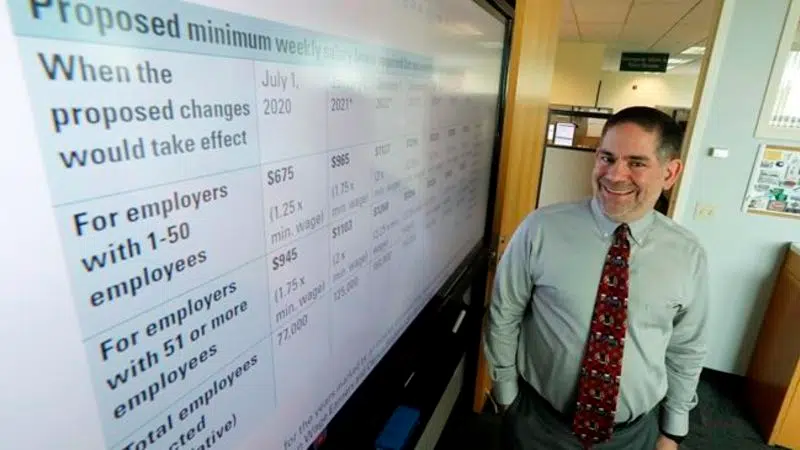
More Washington workers could see OT pay under proposed rule
OLYMPIA, Wash. — More than 250,000 workers in Washington state would be newly eligible for overtime pay by 2026 under a rule proposed Wednesday by the state’s Department of Labor and Industries.
The state agency announced that it had formally filed the proposed rule, which would ultimately more than triple the salary threshold under which employers must pay overtime to their workers. Under the proposed rule, the higher salary threshold will be set as a percentage of the state’s minimum wage, which is currently $12.50, but will rise to $13.50 an hour next year.
The overtime-exempt threshold will increase yearly, starting July 1, 2020, and will vary depending on the size of the company until 2026, when all companies will have the same threshold.
